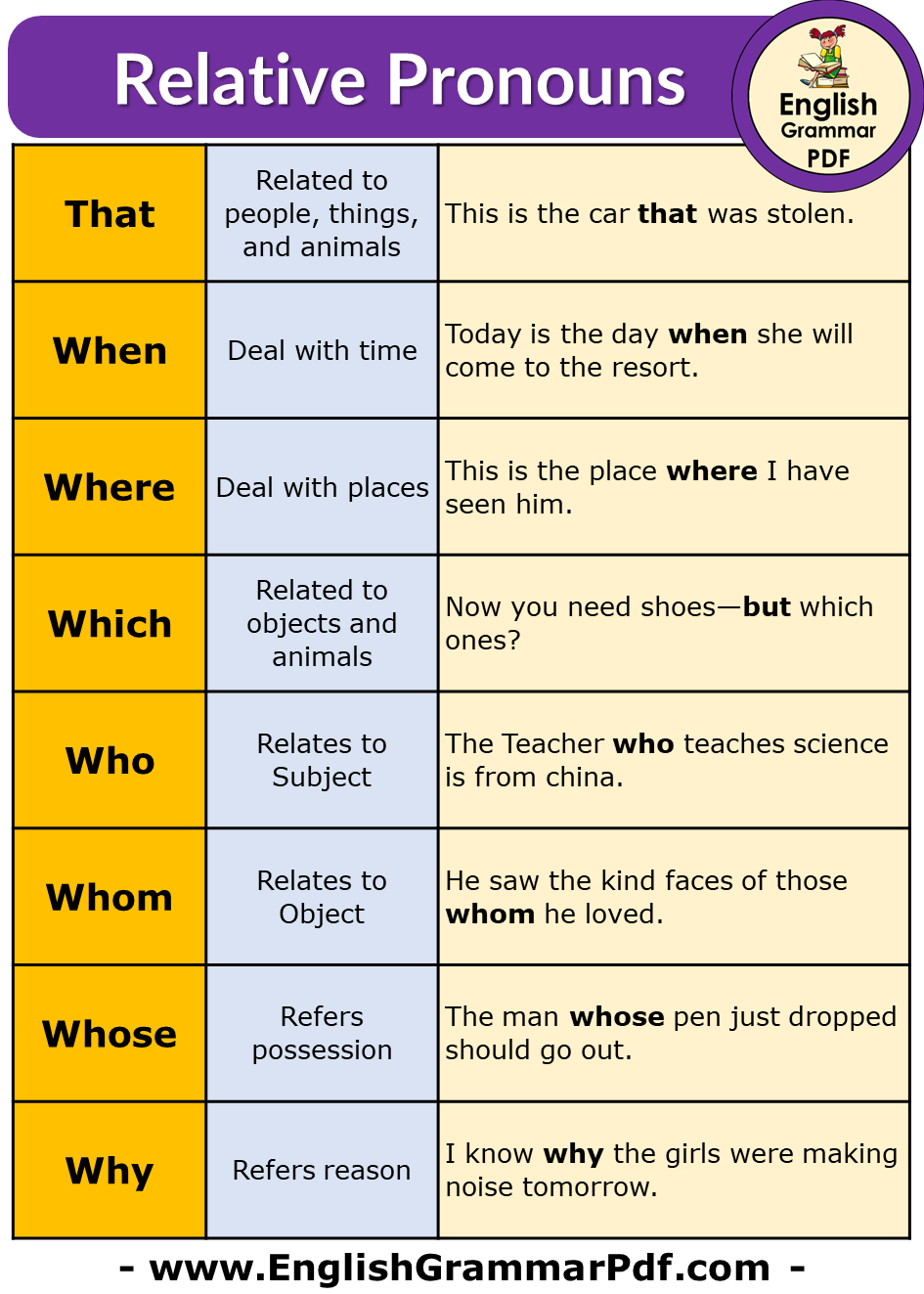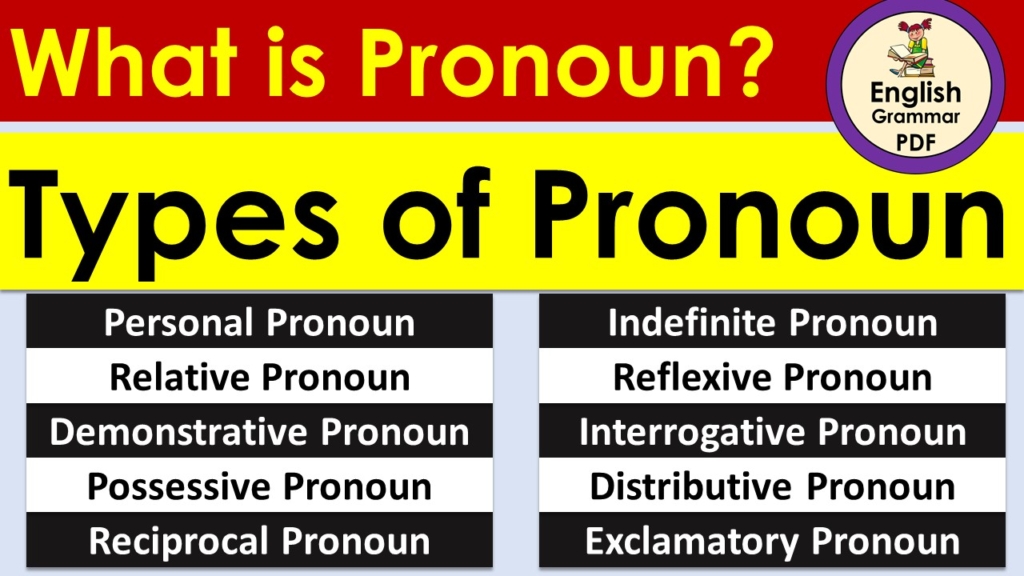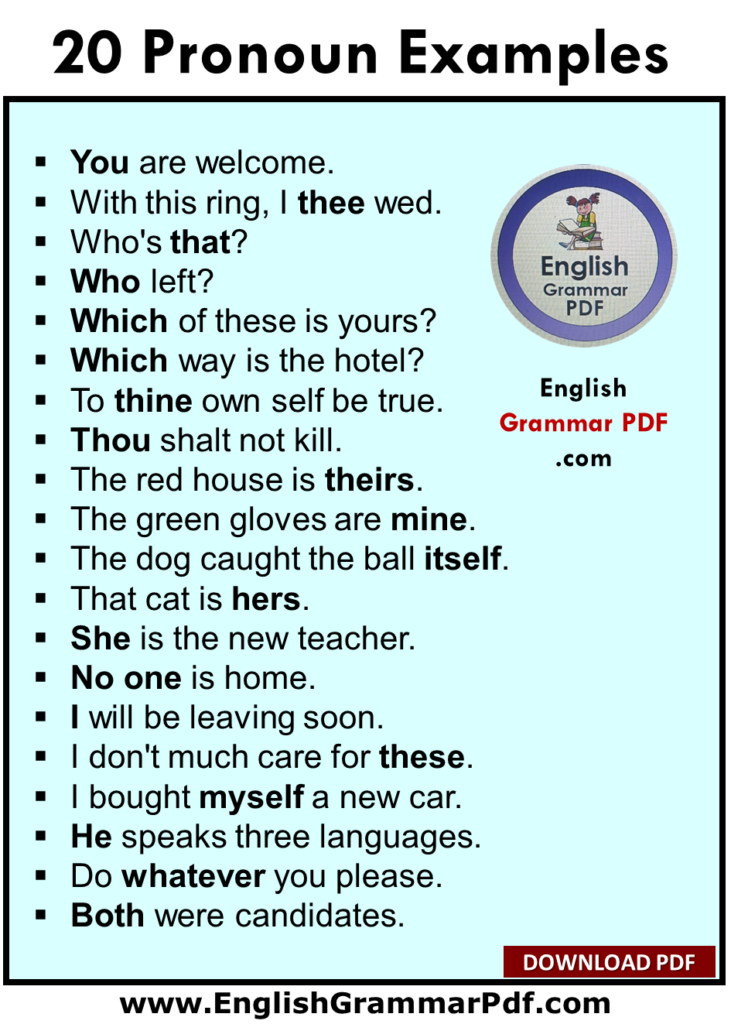Relative pronouns are words that link one part of a sentence to another (an independent clause to a relative clause), adding more information or detail about someone or something mentioned earlier. Relative Pronouns introduce relative clauses, which are parts of sentences that describe nouns.
Words like “who,” “whom,” “which,” “why,” “when,” “where,” “whose,” and “that” are all part of this special group. Each one has its own job, like pointing out people, things, or reasons, and they help make our sentences richer and full of life. By getting to know these words, we can become better at sharing our thoughts and stories in English.
The most common relative pronouns are “who,” for people; “whom,” for the object of a verb or preposition when referring to people; “whose,” for possession; “which,” for things or animals; and “that,” which can be used for both people and things. These words help us to make our sentences more detailed and interesting by connecting ideas smoothly.
Relative Pronouns and Their Uses
Have you ever wondered how we connect our ideas in English, especially when we talk about people or things and give more information about them? Relative pronouns are the special words that help us do just that! They are like bridges that link parts of sentences together. This makes our talking and writing smooth and easy to understand. Today, we’re going to explore some important relative pronouns that will make your English even better!
1. Who
“Who” is a relative pronoun we use when we’re talking about people. It helps us add more information about the person or people in the sentence. We use “who” to connect the main part of the sentence to the part that gives more details about a person.
Example
She is the teacher who helped me with my homework.
2. Whom
“Whom” is similar to “who,” but it is used in a more formal way or when the person is the object of the verb in the additional information. It’s like “who,” but for when the person is receiving the action, not doing it.
Example
The man whom I saw at the store was very tall.
3. Which
“Which” is the relative pronoun we use when we talk about things, not people. It connects the main part of a sentence to the part that gives more information about a thing or things.
Example
That’s the book which I read last week.
4. Why
“Why” is a special relative pronoun we use when we want to give more information about a reason. It often comes after the word “reason” to help explain why something happened.
Example
The reason why I’m late is that my car broke down.
5. When
“When” is a relative pronoun used to add more information about time. It helps us connect two parts of a sentence to talk about a specific time something happened.
Example
Sunday is the day when we usually go to the park.
6. Where
“Where” is used when we want to add information about a place. It connects the main part of the sentence to the part that tells us more about where something is or happened.
Example
The library is the place where I study for my exams.
7. Whose
“Whose” is the relative pronoun we use when we want to talk about possession. It helps us say who something belongs to or who has something.
Example
She’s the artist whose paintings were sold out.
8. That
“That” is a very versatile relative pronoun. We can use it for people, things, and sometimes places. It connects parts of a sentence, adding more information without specifying if it’s about a person or a thing.
Example
She bought the car that was on sale.
Pronouns |
Uses |
Examples |
| That | Related to people, things, and animals | He is the man who drank my juice. |
| When | Deal with time | Today is the day when she will come to the resort. |
| Where | Deal with places | This is the place where I have seen him. |
| Which | Related to objects and animals | Now you need shoes—but which ones? |
| Who | Relates to Subject | The Teacher who teaches science is from china. |
| Whom | Relates to Object | He saw the kind faces of those whom he loved. |
| Whose | Refers possession | The man whose pen just dropped should go out. |
| Why | Refers reason | I know why the girls were making noise tomorrow. |

Download this lesson in PDF


